Festive Feasts and Fasts: A Culinary Journey through India’s Mahavir Jayanti Celebrations

As dawn breaks across the spiritual landscapes of India, a distinctive air of tranquility and reverence blankets the country, heralding the auspicious day of Mahavir Jayanti. This revered festival celebrates the birth of Lord Mahavir, the 24th Tirthankara in Jainism, who introduced the world to the path of truth, non-violence, and asceticism. Mahavir Jayanti isn’t just a day for spiritual reflection; it’s a day where culinary practices become a medium to celebrate life, adherence to non-violence, and the Earth’s bountiful gifts. Our journey through India on this sacred day uncovers the diverse delicacies and dietary customs, observing how Jain communities across the nation immerse themselves in festive feasts and solemn fasts.
Understanding Mahavir Jayanti
Lord Mahavir’s teachings of non-violence (Ahimsa) and truth (Satya) form the essence of Jainism, influencing not just spiritual practices but everyday habits, particularly dietary choices. Mahavir Jayanti, observed on the 13th day of the bright half of the moon in the month of Chaitra, sees Jains across India engaging in prayers, charitable acts, and veneration of the Tirthankara, with special emphasis on food that honors his teachings.
The Spiritual Significance of Fasting
Fasting during Mahavir Jayanti serves multiple spiritual purposes — it purifies the body, aids in self-discipline, and is a manifestation of non-violence. By abstaining from food or following strict dietary restrictions, devotees reflect on self-restraint, gratitude, and the sanctity of all living beings. In cities like Ahmedabad and Jaipur, fasting varies from complete abstention to consuming a single meal before sunset.
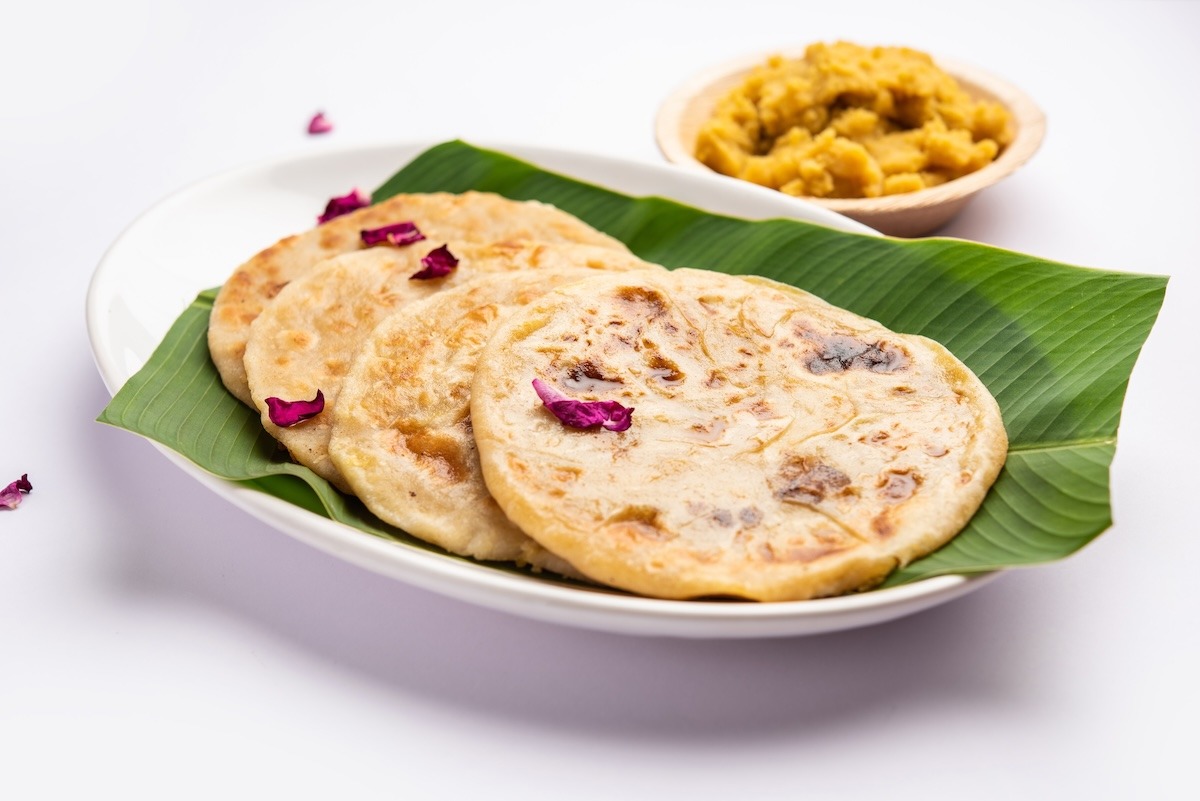
Culinary Celebrations: From Home Kitchens to Temple Feasts
The culinary celebrations of Mahavir Jayanti are as varied as they are vibrant. While fasting is a key aspect of the day, the breaking of such fasts and the communal meals that follow are feats of vegetarian culinary excellence. From lavish temple feasts in places like Palitana — a major pilgrimage site for Jains, to simpler, sattvic meals prepared in homes, the festival is an opportunity to savor an array of dishes that adhere to the Jain ethos of non-violence and purity.
Traditional Dishes and Delicacies
In regions like Rajasthan and Gujarat, the day is marked by special vegetarian dishes that are meticulously prepared without onions, garlic, or root vegetables, in accordance with Jain dietary restrictions. Delicacies include Puran Poli, a sweet flatbread, Khichdi, a hearty rice and lentil porridge, and Dhokla, a fermented chickpea flour snack. Each dish, whether savored in the grand dining halls of temples or the cozy kitchens of families, carries the essence of Jain principles, emphasizing non-violence and purity.
Exploring the culinary traditions of Mahavir Jayanti offers a unique lens into Jainism’s profound spirituality and its celebration of life’s simplicity and non-violence. As we journey from the northern states of Punjab and Delhi to the southern sanctuaries of Karnataka and Tamil Nadu, the festival reveals the diversity of India’s culinary landscape, united by a common thread of devotion and reverence for life.
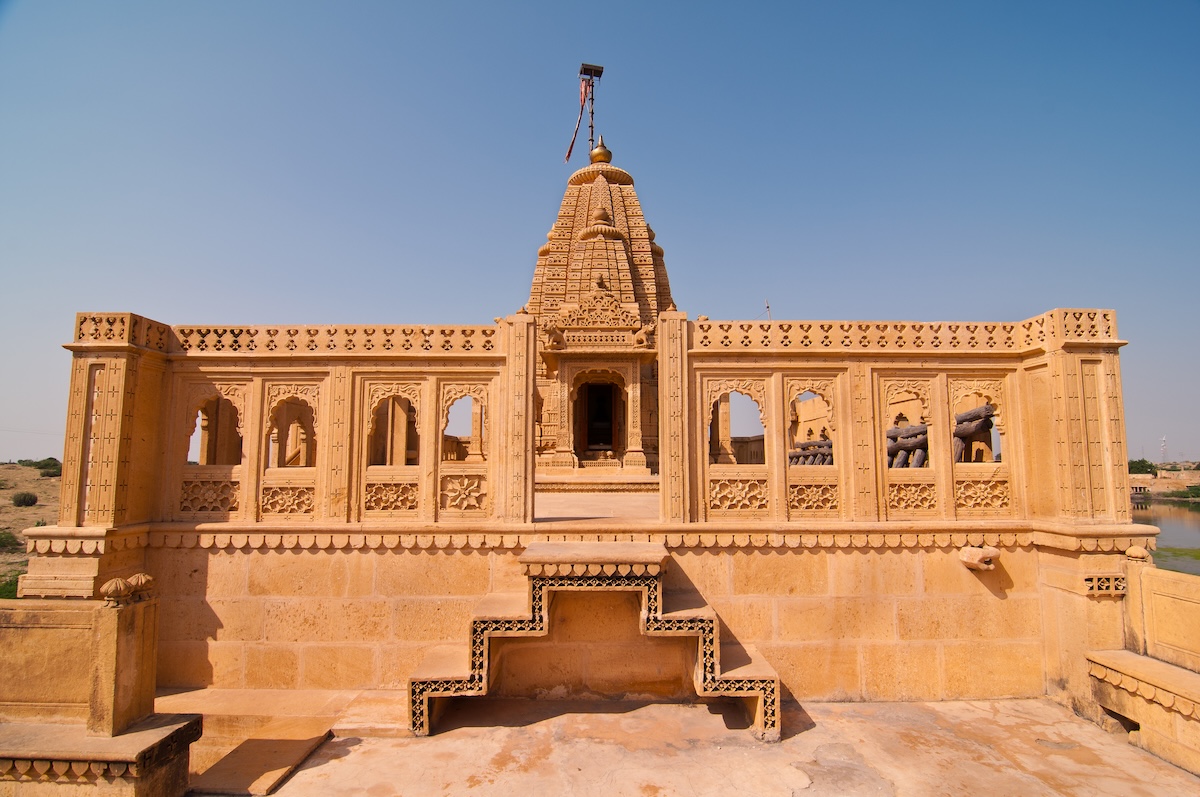
Day-by-Day Guide to Mahavir Jayanti Celebrations
The festivities of Mahavir Jayanti stretch over several days, each marked by its own set of rituals, culinary practices, and communal gatherings. Here’s a comprehensive day-by-day breakdown to immerse yourself fully in the experience:
Day 1: Arrival and Anticipation
Begin your spiritual sojourn by settling into one of the many serene accommodations found across India. From luxury hotels to traditional guesthouses, options abound on Agoda.com. Spend the day exploring local Jain temples and the surrounding areas, preparing yourself for the days of reflection and celebration ahead.
Day 2: The Fasting Begins
Join the local community in observing the fast. Engage in meditation sessions and attend spiritual discourses at nearby Jain temples. For those not fasting, explore the vegetarian street food scene, where dishes are prepared without any root vegetables.
Day 3: Temple Visits and Community Meals
Visit major Jain temples to partake in the communal prayers and offerings. The evening is often reserved for Mahavir Jayanti processions, followed by community meals. These feasts feature a wide array of vegetarian dishes, each signifying the Jain ethos of harmlessness.
Day 4: Culinary Exploration
Participate in cooking classes offered by local temples or culinary schools to learn how to prepare traditional Jain dishes. Many of these classes focus on teaching the subtleties of Jain cooking, helping you bring a piece of the celebration back home.
Day 5: Reflection and Departure
Spend your final day reflecting on the teachings of Lord Mahavir. Engage with local monks and community members to deepen your understanding of Jain philosophy. As you prepare to depart, take a moment to appreciate the tranquility and spiritual awakening experienced during your journey.
Historical Context and Folklore: The Legends of Lord Mahavir
Lord Mahavir, born as Prince Vardhamana, remains one of the most revered figures in Jainism. His journey from princely pleasures to asceticism and enlightenment is woven with tales of sacrifice, meditation, and unparalleled compassion. This section explores significant events from his life and the teachings that form the bedrock of Jain philosophy.
The Great Renunciation
At the age of 30, Prince Vardhamana renounced worldly life, seeking spiritual awakening. This pivotal moment is commemorated with deep reverence during Mahavir Jayanti, symbolizing the path to liberation and enlightenment.
Teachings of Non-violence
Lord Mahavir’s principle of Ahimsa (non-violence) not only encompasses physical harmlessness but extends to thoughts and words. This philosophy is especially relevant in today’s world, advocating peace and tolerance.
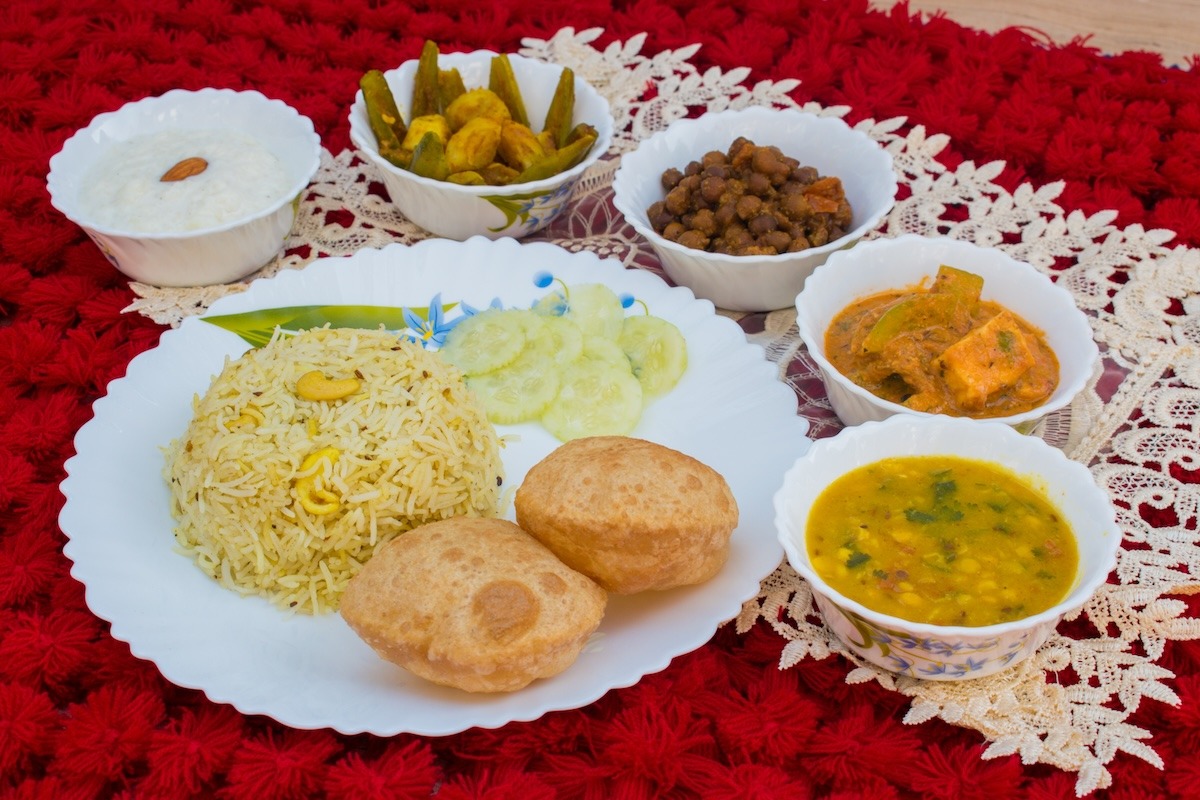
Culinary Deep Dive: Jain Cuisine’s Ethical Delights
Jain cuisine emphasizes ingredients that minimize harm to living beings, reflecting the practice of Ahimsa. This section highlights traditional Jain dishes and ingredients integral to Mahavir Jayanti’s celebrations, underscoring the creativity and ethical considerations unique to Jain culinary practices.
Sattvic Dishes
Sattvic foods are fresh, organic, and energetically cleansing. During Mahavir Jayanti, meals often comprise simple, sattvic foods that promote mental clarity and spiritual purity.
Jain Veganism
With an increasing focus on veganism globally, Jain cuisine’s plant-based dishes offer sustainable and ethical meal options that resonate with contemporary dietary trends, embodying compassion for all living beings.
Festivals and Events: Celebrating Jain Philosophy Beyond Mahavir Jayanti
Mahavir Jayanti is just one of the many festivals celebrated in the Jain calendar, each with its own significance and customs. This section provides a glimpse into other important Jain festivals, offering readers a broader understanding of Jain cultural and spiritual life.
Paryushan Parva
The annual festival of Paryushan is the most important Jain religious observance. It’s a time for fasting, introspection, and seeking forgiveness, culminating in Samvatsari, the day of universal forgiveness.
Diwali in Jainism
Diwali commemorates the anniversary of Lord Mahavir’s attainment of Moksha (liberation). The festival is marked by prayers, lighting of lamps, and reflections on the teachings of Lord Mahavir.
Concluding Thoughts: Embracing the Teachings of Mahavir
As Mahavir Jayanti draws to a close, the teachings of Lord Mahavir continue to resonate, reminding us of the power of non-violence, truth, and compassion. By exploring the culinary traditions, participating in the prayers, and delving into the teachings, visitors and devotees alike can carry forward the essence of Jain philosophy into their daily lives, fostering a world of peace and harmony.
You may also like
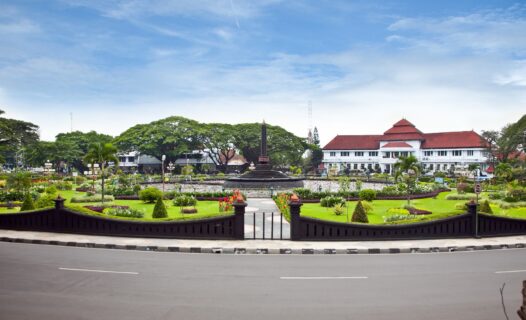
Embark on an unforgettable journey through Malang with our comprehensive travel guide. Discover the city's vibrant culture, breathtaking natural wonders, and culinary delights.
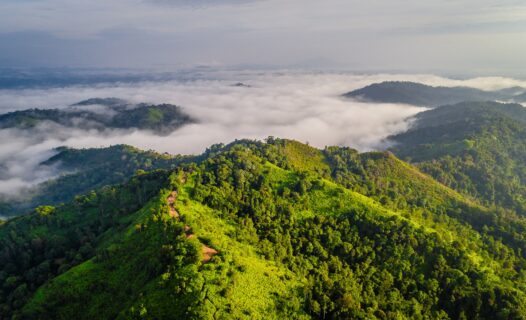
Discover the best of Kuantan in 3 unforgettable days. Dive into our guide for the ultimate itinerary covering serene beaches, rich local culture, and delicious cuisine.

Embark on a life-changing 7-day spiritual journey in Mecca with our comprehensive guide. Discover sacred sites, enrich your faith, and immerse in Islamic culture.

Uncover the serene beauty of Cameron Highlands with our exclusive 3-day itinerary. From lush tea plantations to sweet strawberry farms and mystical hikes, embark on an unforgettable journey.
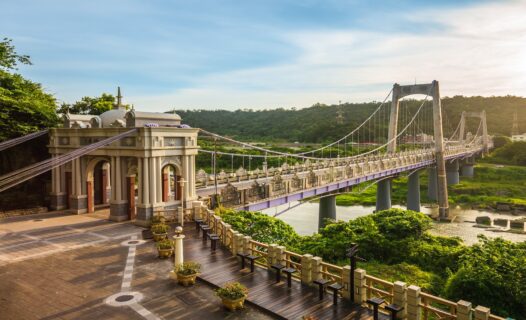
Dive into a weekend of exploration with our Taoyuan itinerary! Discover the perfect blend of history, nature, and gastronomy in just two days. Plan your unforgettable getaway with top experiences and hidden gems in Taoyuan.
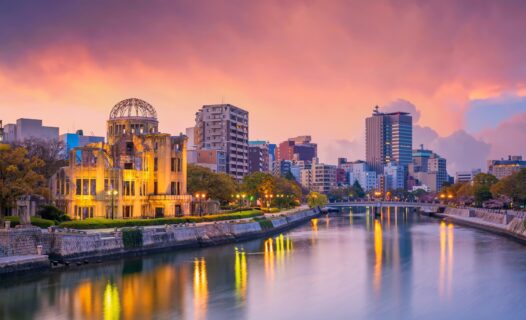
Discover Hiroshima through a 3-day itinerary: from Peace Memorial Park to Miyajima Island's serenity. Embark on a journey of peace, resilience, and beauty.
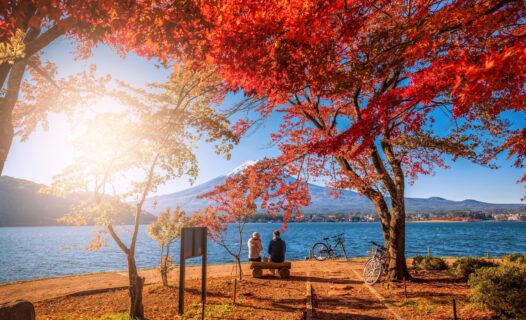
Unlock the serene beauty of Fujikawaguchiko with our 3-day itinerary guide. Explore majestic Mt. Fuji, cultural gems, and soothing onsens.

Embark on a captivating 3-day journey through Hualien, Taiwan. Explore Taroko Gorge, indulge in local cuisine, and uncover hidden gems with our comprehensive itinerary.

Embark on a captivating 3-day journey through Chicago, discovering the city's skyscrapers, cultural gems, and culinary delights.

Dive into a perfect weekend in Boracay Island with our tailored itinerary. Discover pristine beaches, vibrant nightlife, and culinary delights.

Embark on a flavorful adventure in Tangerang with our 3-day culinary guide. Discover traditional dishes, hidden gems, and unforgettable eating experiences in Indonesia's city of gastronomic delight.

Discover the best of Space City with our ultimate 5-day Houston itinerary. From space centers to culinary delights, explore parks, museums, and markets.

Embark on a captivating 3-day journey through Rome's ancient glory and modern charm. Discover history, art, and culinary delights in the Eternal City.

Explore Barcelona in a weekend with our curated itinerary. Uncover Gaudí's masterpieces, savor Catalan cuisine, and bask in the city's vibrant culture.
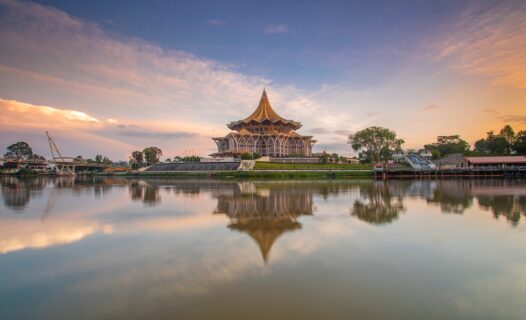
Dive into our Kuching weekend itinerary for top attractions & eats. Discover hidden gems, cultural wonders, and tantalizing food in the heart of Borneo.

Embark on a 7-day journey through Malang, exploring breathtaking landscapes, rich culture, and hidden gems. From sunrise at Mount Bromo to traditional Javanese wellness, our itinerary guides you through unforgettable experiences.
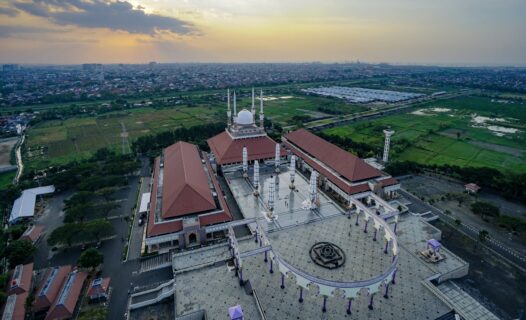
Embark on a 7-day adventure in Semarang, Central Java's coastal charm! From historical marvels like Lawang Sewu to scenic Rawa Pening, our guide unveils must-see spots, local cuisine, and secret gems.
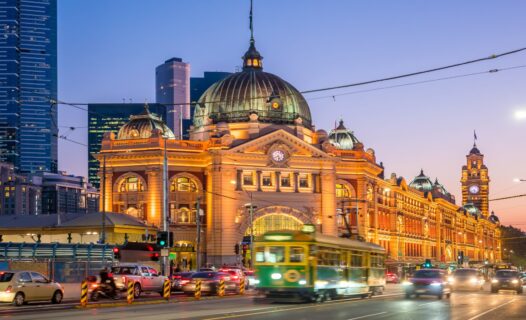
Uncover the best of Melbourne in 7 days with our comprehensive itinerary. From cultural landmarks and lush parks to riverside wonders and culinary delights, get ready to explore the vibrant heart of Australia.

Dive into our Vung Tau Weekend Getaway Itinerary for an unbeatable blend of sandy beaches, historic landmarks, and culinary delights. Start planning your dream coastal escape with Agoda and unlock the secrets of Vung Tau’s charm.

Uncover the ultimate family getaway in Batam Island with our 5-day itinerary! From beach fun to cultural tours, adventure parks, and delicious cuisine, discover activities that appeal to all ages.

Unlock the best of Chonburi in just 3 days! From serene beaches to captivating culture and natural wonders, our comprehensive itinerary guides you through unforgettable experiences.

As dawn breaks across the spiritual landscapes of India, a distinctive air of tranquility and reverence blankets the country, heralding the auspicious day of Mahavir Jayanti. This revered festival celebrates the birth of Lord Mahavir, the 24th Tirthankara in Jainism, who introduced the world to the path of truth, non-violence, and asceticism. Mahavir Jayanti isn’t just a day for spiritual reflection; it’s a day where culinary practices become a medium to celebrate life, adherence to non-violence, and the Earth’s bountiful gifts. Our journey through India on this sacred day uncovers the diverse delicacies and dietary customs, observing how Jain communities across the nation immerse themselves in festive feasts and solemn fasts.
Understanding Mahavir Jayanti
Lord Mahavir’s teachings of non-violence (Ahimsa) and truth (Satya) form the essence of Jainism, influencing not just spiritual practices but everyday habits, particularly dietary choices. Mahavir Jayanti, observed on the 13th day of the bright half of the moon in the month of Chaitra, sees Jains across India engaging in prayers, charitable acts, and veneration of the Tirthankara, with special emphasis on food that honors his teachings.
The Spiritual Significance of Fasting
Fasting during Mahavir Jayanti serves multiple spiritual purposes — it purifies the body, aids in self-discipline, and is a manifestation of non-violence. By abstaining from food or following strict dietary restrictions, devotees reflect on self-restraint, gratitude, and the sanctity of all living beings. In cities like Ahmedabad and Jaipur, fasting varies from complete abstention to consuming a single meal before sunset.

Culinary Celebrations: From Home Kitchens to Temple Feasts
The culinary celebrations of Mahavir Jayanti are as varied as they are vibrant. While fasting is a key aspect of the day, the breaking of such fasts and the communal meals that follow are feats of vegetarian culinary excellence. From lavish temple feasts in places like Palitana — a major pilgrimage site for Jains, to simpler, sattvic meals prepared in homes, the festival is an opportunity to savor an array of dishes that adhere to the Jain ethos of non-violence and purity.
Traditional Dishes and Delicacies
In regions like Rajasthan and Gujarat, the day is marked by special vegetarian dishes that are meticulously prepared without onions, garlic, or root vegetables, in accordance with Jain dietary restrictions. Delicacies include Puran Poli, a sweet flatbread, Khichdi, a hearty rice and lentil porridge, and Dhokla, a fermented chickpea flour snack. Each dish, whether savored in the grand dining halls of temples or the cozy kitchens of families, carries the essence of Jain principles, emphasizing non-violence and purity.
Exploring the culinary traditions of Mahavir Jayanti offers a unique lens into Jainism’s profound spirituality and its celebration of life’s simplicity and non-violence. As we journey from the northern states of Punjab and Delhi to the southern sanctuaries of Karnataka and Tamil Nadu, the festival reveals the diversity of India’s culinary landscape, united by a common thread of devotion and reverence for life.

Day-by-Day Guide to Mahavir Jayanti Celebrations
The festivities of Mahavir Jayanti stretch over several days, each marked by its own set of rituals, culinary practices, and communal gatherings. Here’s a comprehensive day-by-day breakdown to immerse yourself fully in the experience:
Day 1: Arrival and Anticipation
Begin your spiritual sojourn by settling into one of the many serene accommodations found across India. From luxury hotels to traditional guesthouses, options abound on Agoda.com. Spend the day exploring local Jain temples and the surrounding areas, preparing yourself for the days of reflection and celebration ahead.
Day 2: The Fasting Begins
Join the local community in observing the fast. Engage in meditation sessions and attend spiritual discourses at nearby Jain temples. For those not fasting, explore the vegetarian street food scene, where dishes are prepared without any root vegetables.
Day 3: Temple Visits and Community Meals
Visit major Jain temples to partake in the communal prayers and offerings. The evening is often reserved for Mahavir Jayanti processions, followed by community meals. These feasts feature a wide array of vegetarian dishes, each signifying the Jain ethos of harmlessness.
Day 4: Culinary Exploration
Participate in cooking classes offered by local temples or culinary schools to learn how to prepare traditional Jain dishes. Many of these classes focus on teaching the subtleties of Jain cooking, helping you bring a piece of the celebration back home.
Day 5: Reflection and Departure
Spend your final day reflecting on the teachings of Lord Mahavir. Engage with local monks and community members to deepen your understanding of Jain philosophy. As you prepare to depart, take a moment to appreciate the tranquility and spiritual awakening experienced during your journey.
Historical Context and Folklore: The Legends of Lord Mahavir
Lord Mahavir, born as Prince Vardhamana, remains one of the most revered figures in Jainism. His journey from princely pleasures to asceticism and enlightenment is woven with tales of sacrifice, meditation, and unparalleled compassion. This section explores significant events from his life and the teachings that form the bedrock of Jain philosophy.
The Great Renunciation
At the age of 30, Prince Vardhamana renounced worldly life, seeking spiritual awakening. This pivotal moment is commemorated with deep reverence during Mahavir Jayanti, symbolizing the path to liberation and enlightenment.
Teachings of Non-violence
Lord Mahavir’s principle of Ahimsa (non-violence) not only encompasses physical harmlessness but extends to thoughts and words. This philosophy is especially relevant in today’s world, advocating peace and tolerance.

Culinary Deep Dive: Jain Cuisine’s Ethical Delights
Jain cuisine emphasizes ingredients that minimize harm to living beings, reflecting the practice of Ahimsa. This section highlights traditional Jain dishes and ingredients integral to Mahavir Jayanti’s celebrations, underscoring the creativity and ethical considerations unique to Jain culinary practices.
Sattvic Dishes
Sattvic foods are fresh, organic, and energetically cleansing. During Mahavir Jayanti, meals often comprise simple, sattvic foods that promote mental clarity and spiritual purity.
Jain Veganism
With an increasing focus on veganism globally, Jain cuisine’s plant-based dishes offer sustainable and ethical meal options that resonate with contemporary dietary trends, embodying compassion for all living beings.
Festivals and Events: Celebrating Jain Philosophy Beyond Mahavir Jayanti
Mahavir Jayanti is just one of the many festivals celebrated in the Jain calendar, each with its own significance and customs. This section provides a glimpse into other important Jain festivals, offering readers a broader understanding of Jain cultural and spiritual life.
Paryushan Parva
The annual festival of Paryushan is the most important Jain religious observance. It’s a time for fasting, introspection, and seeking forgiveness, culminating in Samvatsari, the day of universal forgiveness.
Diwali in Jainism
Diwali commemorates the anniversary of Lord Mahavir’s attainment of Moksha (liberation). The festival is marked by prayers, lighting of lamps, and reflections on the teachings of Lord Mahavir.
Concluding Thoughts: Embracing the Teachings of Mahavir
As Mahavir Jayanti draws to a close, the teachings of Lord Mahavir continue to resonate, reminding us of the power of non-violence, truth, and compassion. By exploring the culinary traditions, participating in the prayers, and delving into the teachings, visitors and devotees alike can carry forward the essence of Jain philosophy into their daily lives, fostering a world of peace and harmony.
You may also like












